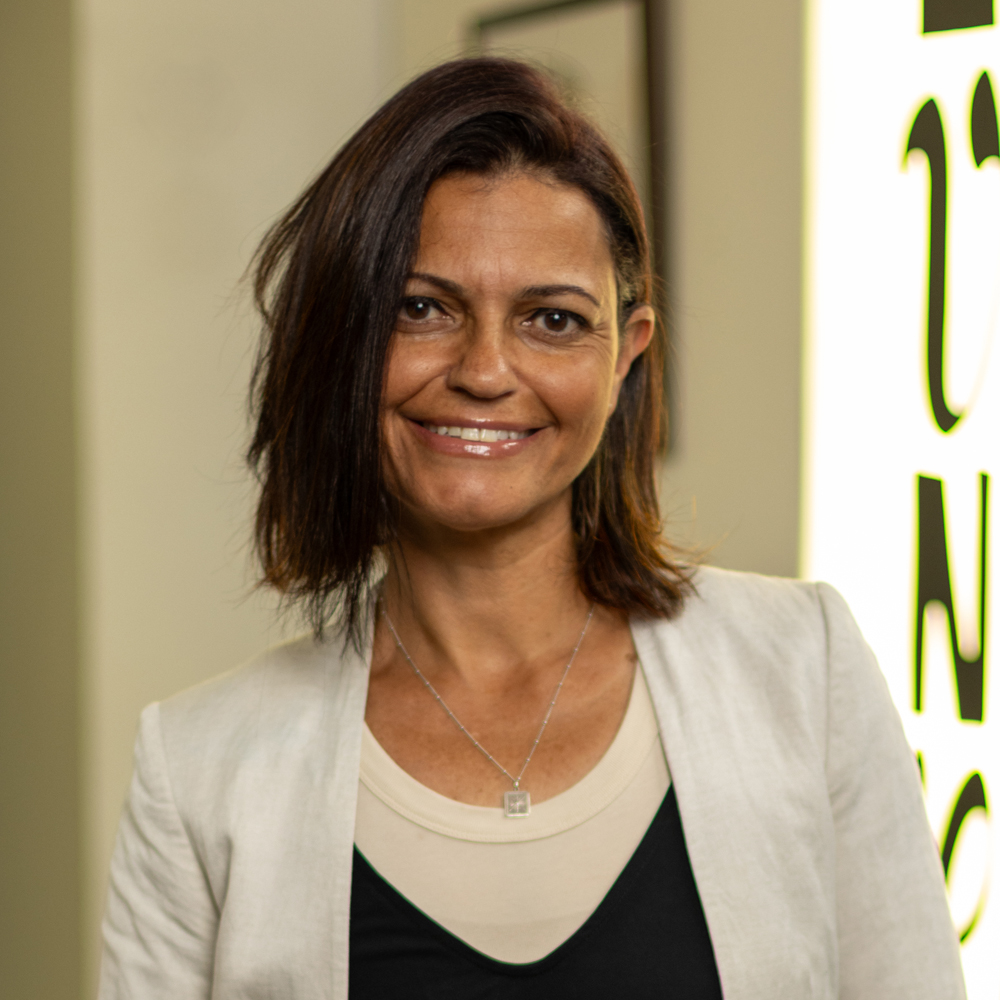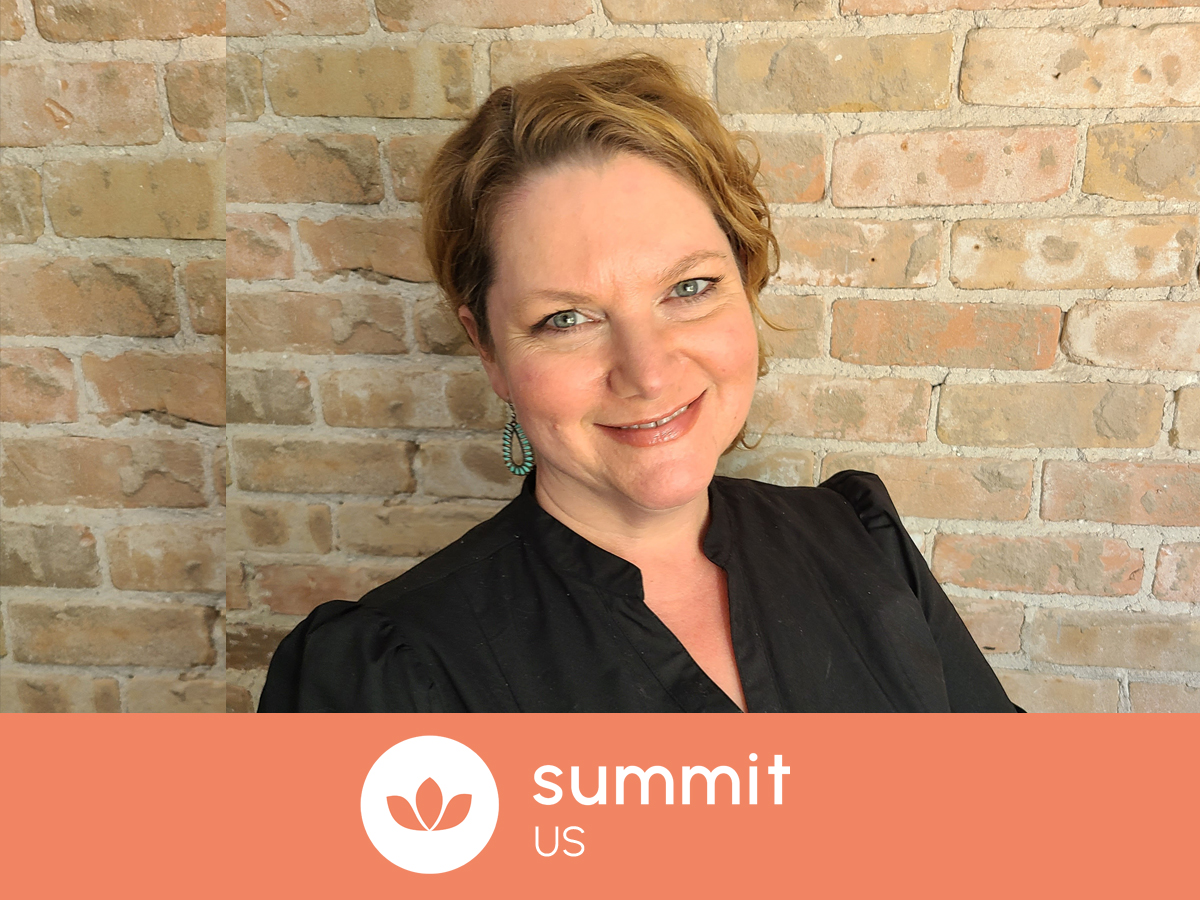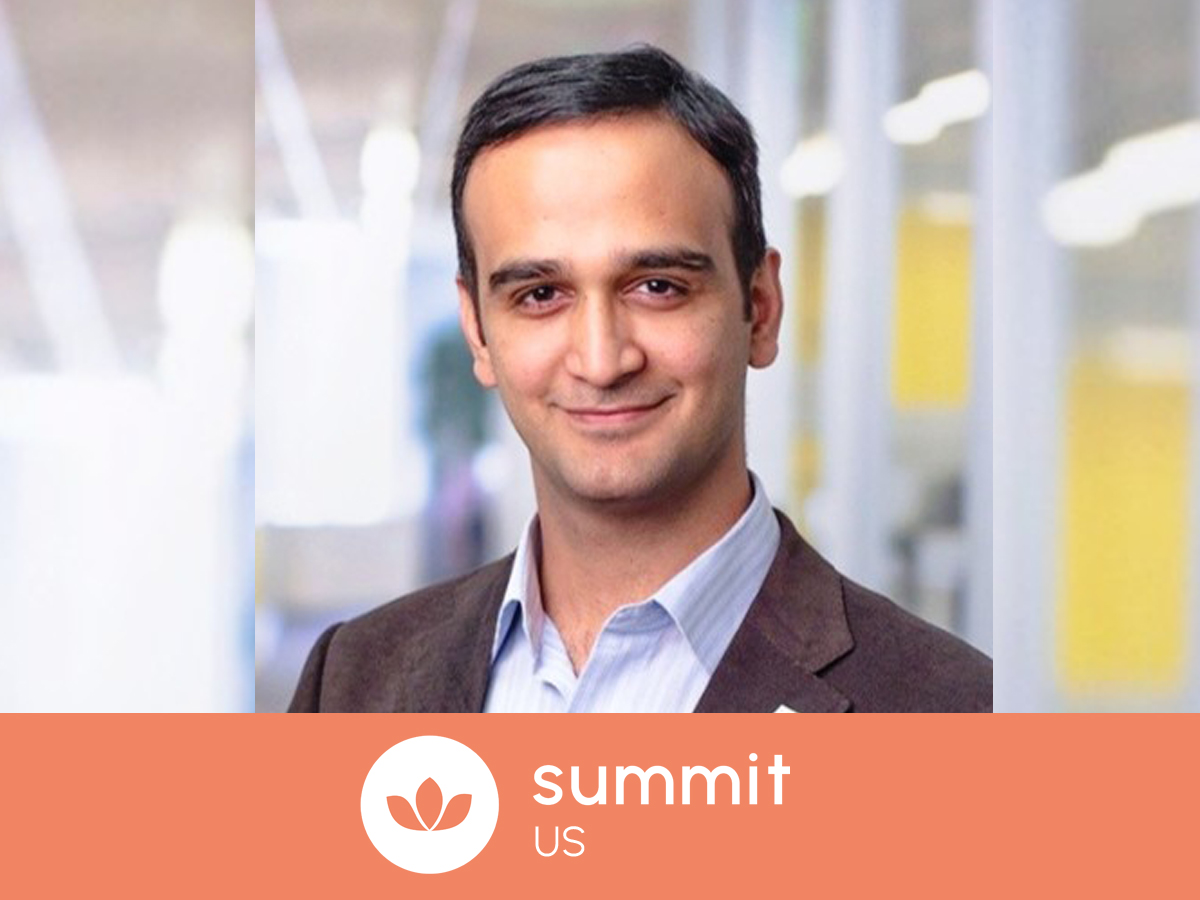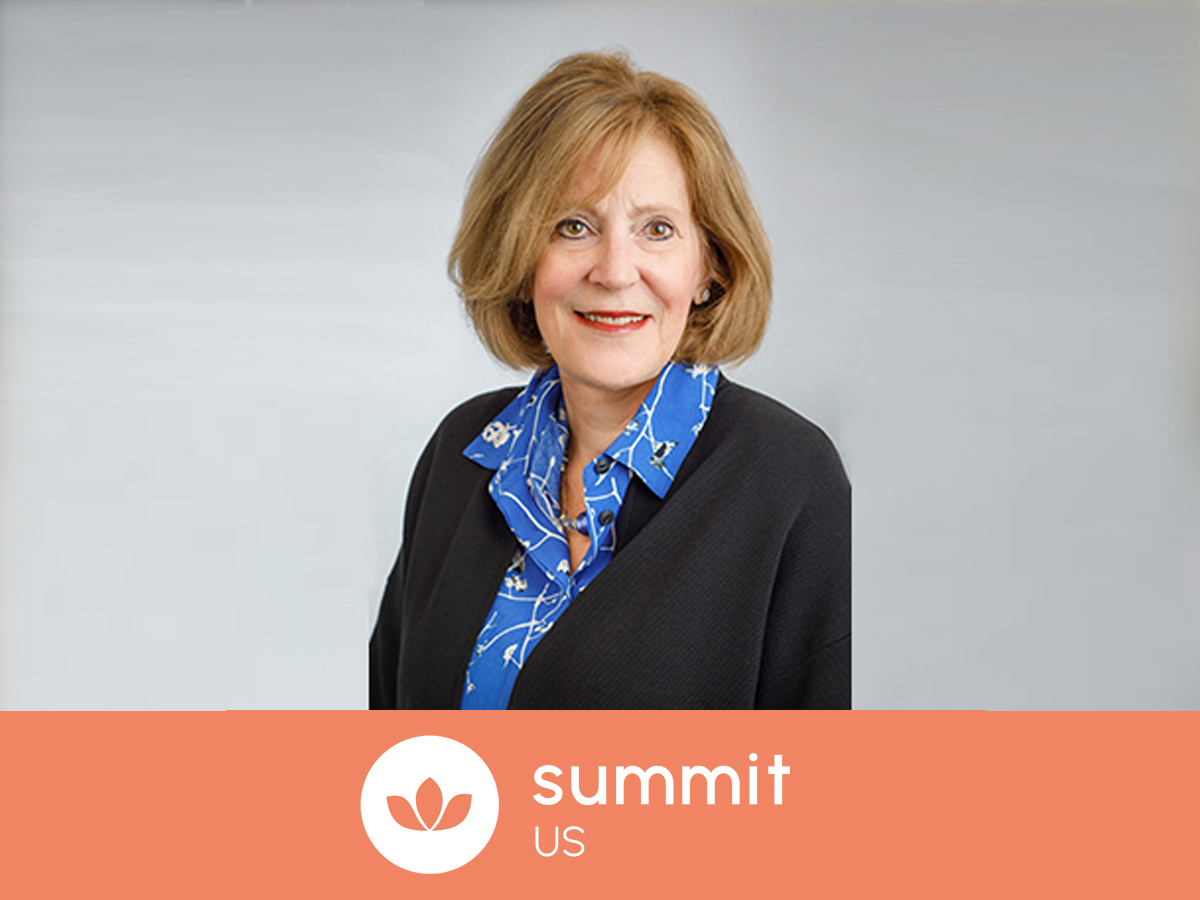
Roni Millard is a powerhouse in both the business and wellbeing spaces, with a 30-year executive career spanning marketing, sales, and transformation across global brands.
Aside from her marketing consultancy, she’s the founder of The Wellbeing Edge, a wellness and performance consultancy where she works as a wellbeing consultant helping businesses prioritise the health and wellbeing of their people through keynote speaking, tailored wellbeing programs, and coaching.
She advocates for high performance in the workplace, but never at the expense of health and she champions the mindset of being positively obsessed with our wellbeing while still achieving big.
We are delighted that Roni will be speaking in Sydney as part of our Australia summit. We caught up with her to see how she’s feeling in the runup to the event.
Hi Roni, we are thrilled that you will be speaking at the Wellbeing at Work Australia Summit in November. Our first and most important question is, how are you doing today?
I’m doing really well, thank you for asking. Every morning I take a few minutes to check in with myself — How am I feeling as I wake? What are my energy levels like? What thoughts are coming up? I do the same before going to sleep, with the intention of winding down into calm. That simple practice of self-check-in keeps me grounded. And of course, I always appreciate when someone else asks me the same question.
As a leader based in the region, what are the main challenges you are facing when it comes to employee wellbeing and mental health?
Having worked in the corporate sector for decades, I’ve seen firsthand how the expectations have shifted. In the past, work and personal life were treated as two separate worlds. You were expected to show up, perform, and leave everything else at the door. But that’s not authentic or realistic anymore. We now understand that people can’t just switch off their personal world when they walk into the office.
The challenge is that many organisations still haven’t caught up with this shift. Employees are complex human beings with different backgrounds, cultures, and experiences, so a one-size-fits-all approach doesn’t work. Some of the biggest challenges I see are:
- Leaders not knowing what the real issues are when it comes to health and wellbeing.
- Leaders feeling scared to have the courageous conversations that will challenge the status quo and as a result be seen to possibly risk or compromise company profits.
- A lack of evidence and data to inform the right solutions.
- The difficulty of balancing wellbeing with productivity and profit.
- Employees not always feeling safe enough to raise their hand and say, “I’m not okay.”
Until we address these, wellbeing will remain something organisations talk about but don’t always embed into their culture.
What strategies have you seen developing over the past 6 months, both internally and externally, that are moving the dial on wellbeing in the workplace?
I am seeing more organisations take wellbeing seriously, with reports and data now providing the evidence we need. For example, Australia isn’t in the top 10 countries for work-life balance- many European countries are as confirmed by OECD research in 2019 where we saw Netherlands, Italy and Denmark take the top 3 spots respectively.
In Australia, we’re among the highest globally for burnout and reasons are due to poor boundary setting, always on culture and economic stresses. Deloitte also recently named burnout among women an epidemic. All these things are wake-up calls we need to heed.
Some positive shifts include:
- Reviewing job descriptions to ensure they are realistic and achievable.
- Increasing flexibility between working from home and office days.
- Moving beyond token initiatives like just RUOK Day and building check-ins into everyday culture.
- Recognising the value of belonging. I had the pleasure of recently meeting Fiona Kerr whose neuroscience research emphasises that human connection, stability, and a sense of belonging are critical for wellbeing. I feel that more organisations are trying to create workplace environments which reduce random interaction (versus stable seating, consistent teams) which can help people feel more secure and connected.
- Increased frequency of conversations that are open where more and more people are starting to go there and get involved without fearing backlash.
The evidence is there, and I do believe we’re starting to see genuine action.
Why is employee wellbeing so important to you personally?
Because I’ve lived the consequences of neglecting it. I’ve experienced chronic illness, cancer, infertility struggles, miscarriage, and loss, all while climbing the corporate ladder. I didn’t feel safe enough to ask for support and I pushed through at great personal cost. That’s why I’m on a mission now: to ensure others don’t have to go through what I did. Every organisation should integrate health and wellness into their culture not as an afterthought but as a normal part of their ways of working.
What impact is AI having in your organization and how are you managing that?
AI is both exciting and challenging. For me, the opportunity lies in using AI to free up time from repetitive tasks so that leaders and teams can focus on the human aspects of work, connection, creativity and empathy. The challenge is ensuring we don’t replace human interaction with automation in areas where people most need a personal touch. The organisations managing AI best are the ones embedding it ethically and thoughtfully, while keeping people at the heart of decision-making.
The other point to make here is that whilst AI is indeed taking care of repetitive tasks so we can focus our energy on the bigger challenges that demand real problem-solving and creativity, we need to be careful not to slip into mental overload. If AI simply accelerates the pace of work without boundaries, we risk hurrying ourselves toward burnout rather than creating space for deeper, more meaningful impact.
Other than AI, are there any challenges that you are seeing for the first time and how are you addressing them?
One of the biggest challenges is getting leaders to take wellbeing seriously not as a once-a-year initiative but as a daily discipline. I’ve sat at the executive table and seen both sides: leaders who genuinely care and want to do better, and others who treat wellbeing as a tick-box exercise while focusing solely on profit. Often it isn’t ill-intentioned, it’s simply that they don’t know any other way. But we need brave leaders who are willing to put people back into the equation, even if it means challenging the old models of success.
What areas do you think employers should be focused on over the next 12 months?
- Collecting meaningful data on employee wellbeing, beyond just eNPS.
- Reviewing company values and ensuring they’re lived, not just printed.
- Understanding where employees are right now in their wellbeing and where they need to be for sustainable high performance.
- Addressing root causes behind absenteeism and presenteeism.
- Acknowledging there are and will be staff who aren’t well, need help of some sort and need to be cared for in different ways.
- Having honest conversations about chronic illness, caregiving, and mental health and creating structures that support staff through these realities.
It’s about moving from knowing to doing, with the right tools and courage to act.
Do you feel that investment in employee wellbeing in the region is increasing or decreasing and is that a direct reflection on HR leaders’ increasing ability to demonstrate effective returns of their strategies to leadership?
There’s certainly more buzz and momentum, but we’re still in an education phase. Many leaders want to do the right thing but lack the knowledge or confidence to drive change. That’s where my work comes in. I know what it’s like to be the breadwinner navigating illness, or to lead a team while silently carrying grief. Too often, no one asked if I was okay. That’s why authentic leadership and courageous conversations are so important. Until leaders see wellbeing as a business imperative, not just a ‘nice to have’, investment will continue to be patchy, but I’m encouraged to see more leaders leaning in, for sure.
How has your organisation been leading the way?
My business, The Wellbeing Edge, is in its first year. But already I’ve had the privilege of speaking to many organisations about my story and my mission. Every time, the feedback is the same: ‘We need to keep talking about this until it becomes the new normal’. For me, success is when health and wellbeing become metrics that sit alongside profit, productivity, and performance, and are measured regularly.
Roni will be speaking in Sydney at the Wellbeing at Work Summit Australia.
Further details and tickets for the Sydney Summit can be found here.
Further details and tickets for the Melbourne Summit can be found here.



